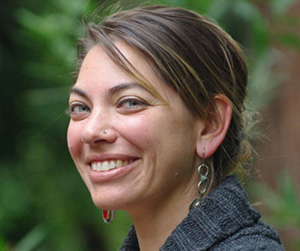A new petition published in the journal Nature today from 240 leading conservationists, including UC Santa Cruz faculty, argues that conservation's impact on the world is being hindered by the field's lack of inclusiveness—particularly of the many different values people hold for nature, and of the viewpoints of women and diverse ethnicities and cultures.
In particular, the petition aims to move conservation beyond a "vitriolic, personal" debate that has polarized the field in recent years, pitting the idea that we must protect nature to help ourselves (nature's "instrumental value") against the idea that nature should be protected for its own sake ("intrinsic value").
"This debate presses at the core of why we do conservation. It's such a significant issue, yet there are almost no female voices speaking out," said Heather Tallis, lead author of the Nature commentary. "Even though women hold more than half of leadership positions in U.S. conservation organizations and top positions in many key international conservation initiatives, we're not hearing them."
Tallis is an adjunct professor of environmental studies at UC Santa Cruz and lead scientist of The Nature Conservancy. Her coauthors include fellow UC Santa Cruz faculty members Karen Holl, Erika Zavaleta, and Chris Wilmers in the Department of Environmental Studies, and Kristy Kroeker, Ingrid Parker, Terrie Williams, Don Croll, and Jim Estes in the Department of Ecology and Evolutionary Biology.
"Conservation has always been good at saving a diversity of species, and if we look back in history 100 years or so, it was also good at embracing a diversity of values," Tallis said. "We want to get back to that, and do it with a diverse set of people that represent the world we live in, the world where we need conservation to succeed."
Tallis, who earned an M.S. in chemical oceanography at UC Santa Cruz and is currently based at Long Marine Laboratory, is the first woman to serve as lead scientist for The Nature Conservancy, a leading conservation organization working around the world to protect ecologically important lands and waters. She joined the conservancy's other lead scientist, M. Sanjayan (also a UCSC alum: biology Ph.D. '97), in 2013.
Proposed: A 'Unified and Diverse Conservation Ethic'
The field of conservation is facing two massive issues at once, said Tallis: a clash of core values and persistent gender and cultural bias. The petition's authors aim to address both issues by raising the voices of women and men from around the world in support of a "unified and diverse conservation ethic" that "recognizes and accepts all values of nature from intrinsic to instrumental" and can align with "the values of the many audiences we need to engage."
"We will continue to face hard conservation problems, and all values will not be equally served in every context," the petition states. "Approaching these issues with representative perspectives and a broad base of respect, trust, pragmatism and shared understanding will more quickly and effectively advance our shared vision of a thriving planet."
Tallis said such inclusiveness of values is already being embraced by key efforts for conservation such as the Convention on Biological Diversity. And she adds that many rank-and-file conservationists—men as well as women—are ready to move past the "instrumental vs. intrinsic value" divide.
"I started this letter to raise the voices of women, but quickly found just as many men in conservation who are passionate about broadening the kinds of values and people we embrace," Tallis said. "They see that we can only meet the great challenges we face by including many values and many perspectives."
Steps Toward a Truly Global Conservation Ethic
To rectify the lack of diversity in values and voices, the petition's 240 signatories proposed a set of specific measures, including:
- Portraying to students training to be conservation scientists the global history of the field and its centuries of diverse approaches;
- Using social media, journals, and conferences to elevate the voices of scientists and practitioners from underrepresented genders, cultures and contexts;
- Embracing "all plausible conservation actors"—including corporations, government agencies, and faith-based organizations; and
- Bringing media attention to the full breadth of conservation scientists and practitioners to counter the few polarized voices that are now garnering headlines.
"We also need to focus more on building the evidence base for conservation," said Tallis, "so we can move away from these abstract debates toward knowledge of what really solves problems and creates change on the ground."
Conservationists can now add their names to the petition and learn more about next steps toward bringing greater diversity to conservation values and voices online at diverseconservation.org.



